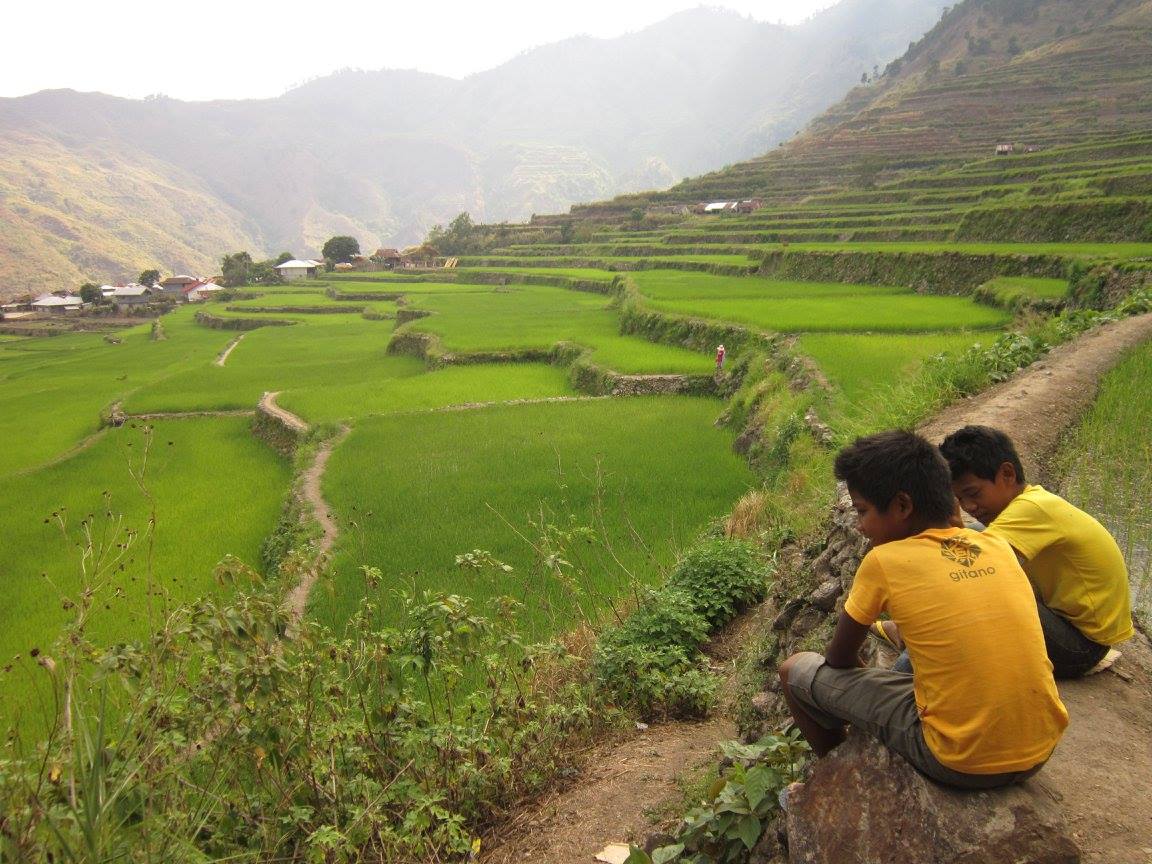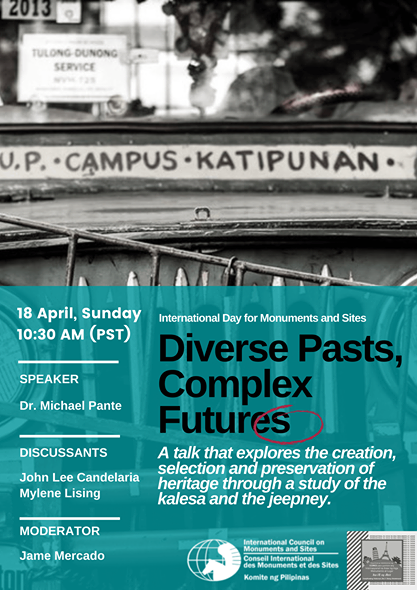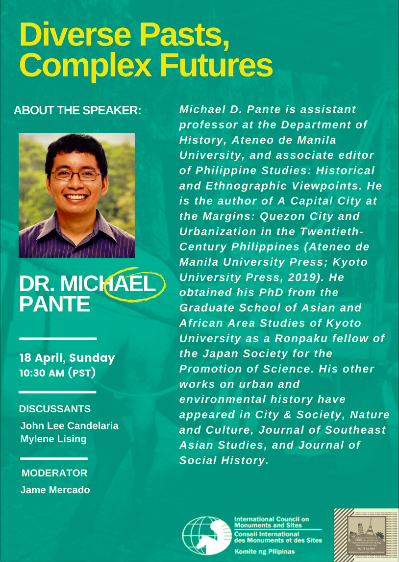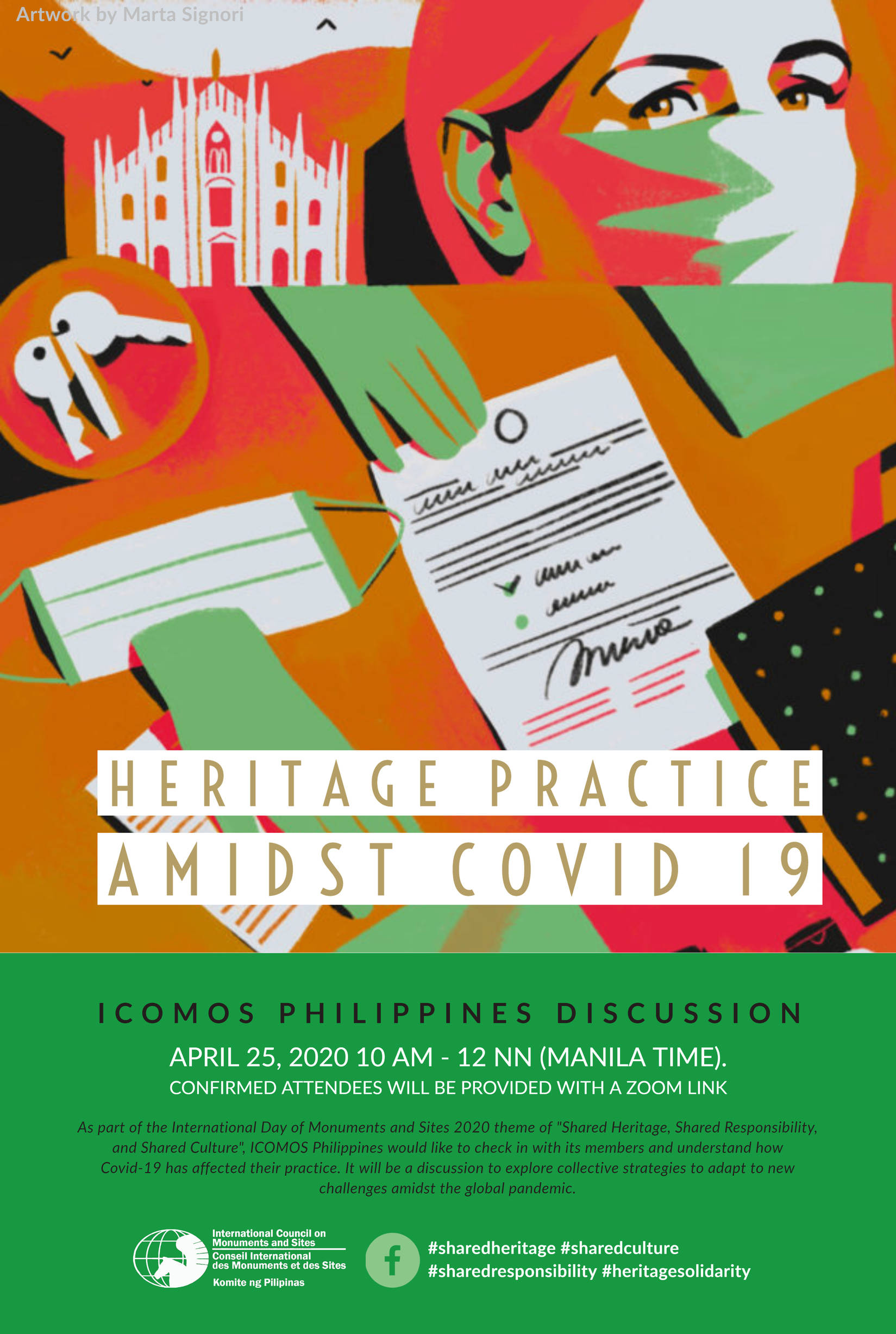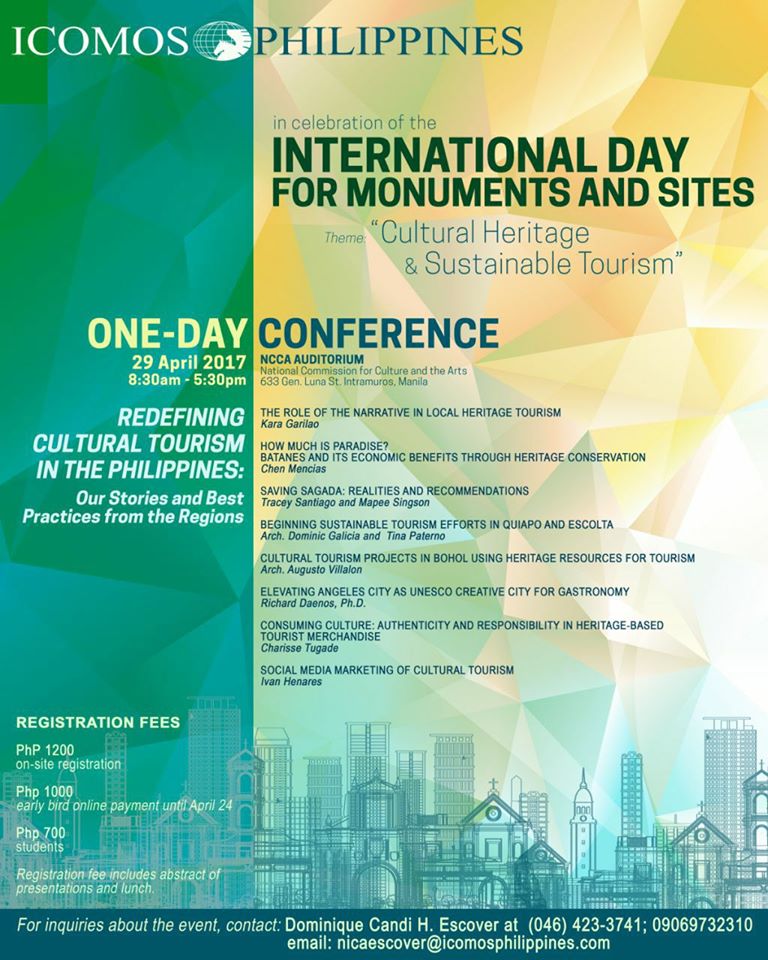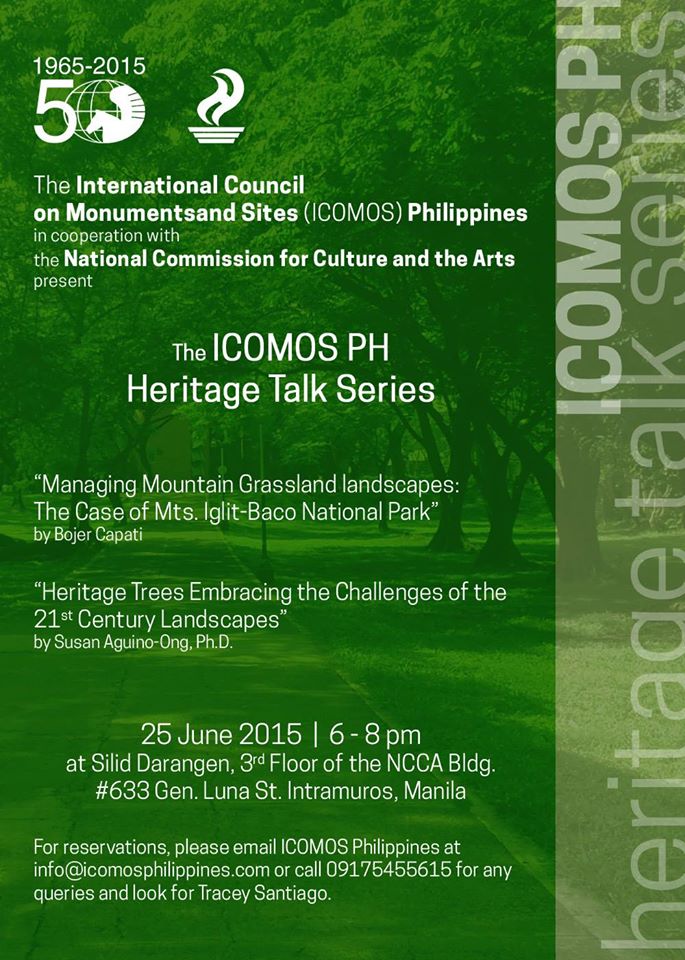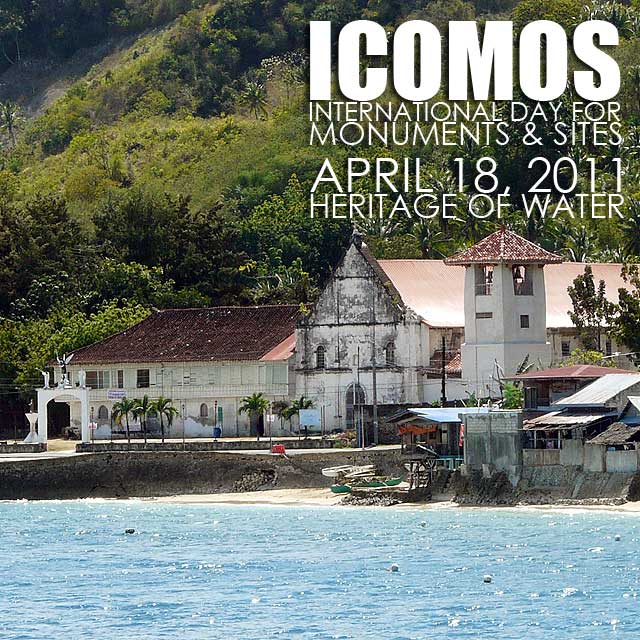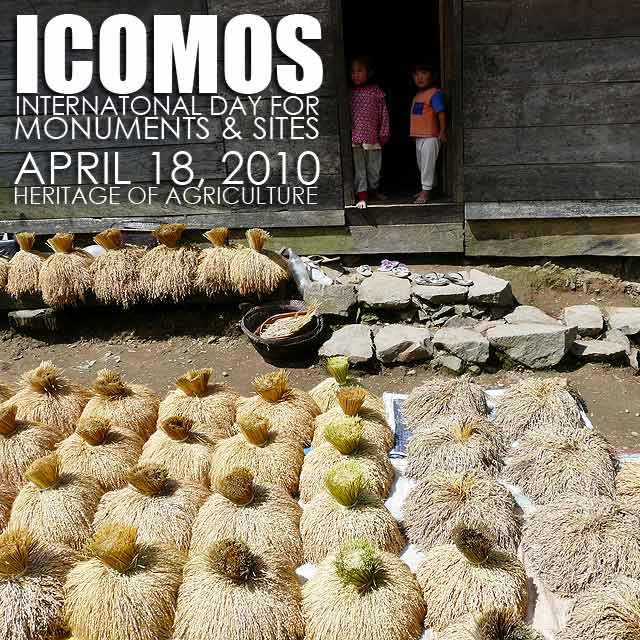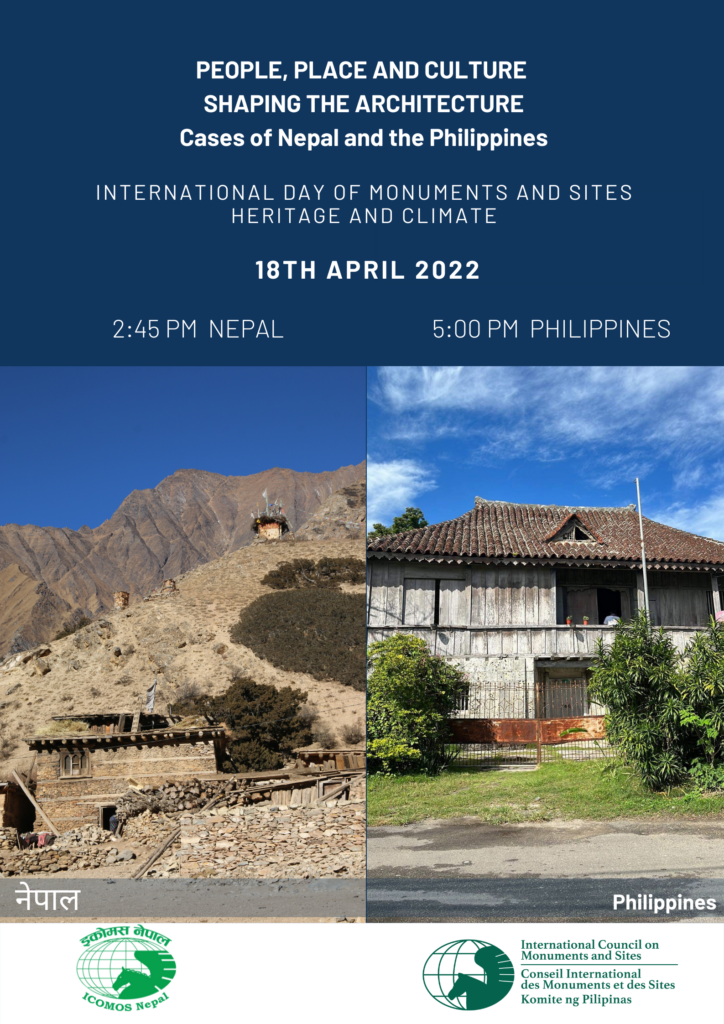
In celebration of the International Day for Monuments and Sites, ICOMOS Philippines and ICOMOS Nepal collaborate on a talk that explores how climate change affects each country’s vernacular heritage. As vernacular heritage is a product of local climate, topography, culture and locally available materials in the past, how will future climate hazards – changing temperatures, rainfall patterns, winds, drought, flash floods, wildfire, storm, landslide, etc., have a larger impact on the site?
Two cases from each country shall present how the place of origin, climatic condition and the culture of the people living in the area has shaped their architecture. The speakers discuss how the vulnerabilities might manifest (rising damp, changing landscapes, loss of roofing, for example), how sites have adapted to keep resilient, and what other interventions we should be planning for today to secure sites for the imminence of climate change.The talk will take place on Monday, April 18, from 5:00 PM to 6:30 PM.
Registration link: https://us02web.zoom.us/meeting/register/tZ0rdOCupjMvH9xxMOoBKIRGDfJI8v-iHQmk
